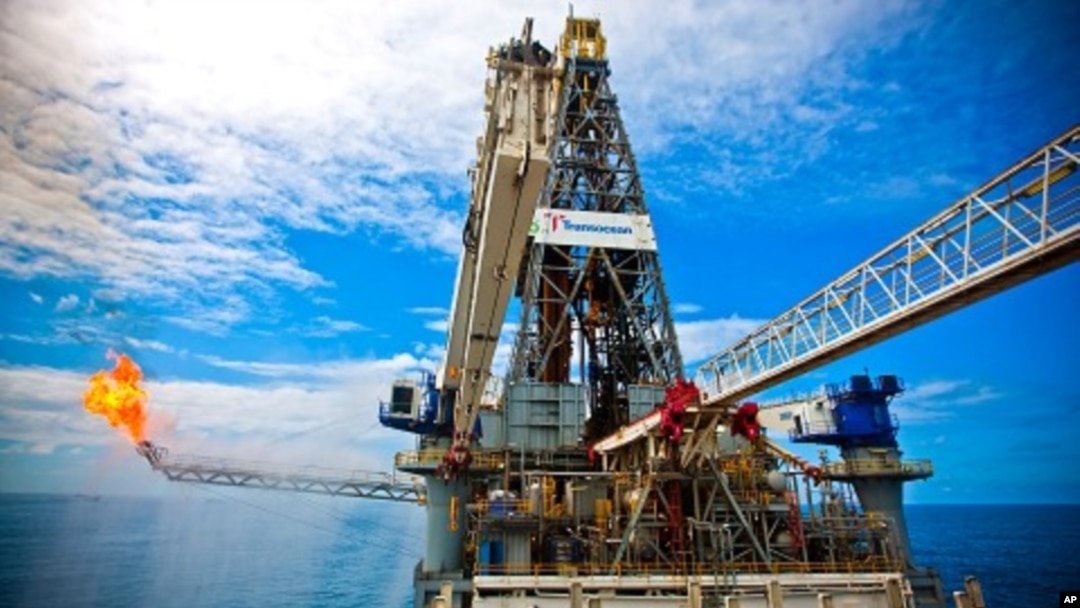BP oil company has removed a pipeline collecting oil from a damaged well in the Gulf of Mexico, after detecting a problem with the system. Officials hope to replace the device to stop oil from gushing into the water.
Coast Guard Admiral Thad Allen said engineers were forced to remove the containment cap because of concerns about natural gas build-up in the collection system. He said technicians saw a surge overnight Wednesday and removed the cap, which was siphoning oil into surface vessels.
Admiral Allen said BP crews believe one of the many remote-controlled submarines operating near the oil well may have bumped into the cap system. He said the submarine apparently closed one of the vents that was open to avoid the possible formation of hydrate crystals. The crystals can form when natural gas mixes with cold water, clogging the flow of oil through the pipeline.
Admiral Allen said crews hope to reinstall the cap as soon as possible.
"If there are no hydrates in the containment cap, they will attempt to re-install it later today," said Allen. "If there are hydrates, they will have to re-run the pipeline and that will take considerably longer."
BP crews first installed the cap more than two weeks ago, and since then have been fine-tuning the system to capture as much oil as possible.
Admiral Allen said before the cap was removed crews captured more than 27,000 barrels of oil Tuesday, the highest amount so far. He added that a ship using a separate set of pipelines is continuing to collect oil, while crews work to reattach the cap system connected to the drill ship Discoverer Enterprise.
"The Discoverer Enterprise has terminated its operations while they check if there are hydrates and [determine] if they can reattach. So there is more [oil] coming out than there would have been, but it is not a totally unrestrained discharge," said Allen.
Officials also reported two deaths on Tuesday linked to the oil spill in the Gulf of Mexico. Admiral Allen said one death involved a swimmer, and the other involved the operator of a private vessel assisting in the oil clean up. Allen did not offer further details and said the deaths are under investigation.
About 2,000 private ships are involved in the clean-up, including many fishermen who are unable to fish because of possible contamination to seafood in the Gulf. U.S. officials are monitoring conditions in the Gulf to ensure clean-up workers are not sickened by exposure to oil residue. The deputy assistant secretary of labor for the Occupational Safety and Health Administration, Jordan Barab, says the biggest problem for workers has been summer heat.
"We have had a number of incidents with heat, including some hospitalizations," said Barab. "We are very concerned about that, and in conjunction with fatigue problems from the long hours people are working."
Officials say they will be monitoring conditions for workers and residents in the Gulf, as clean-up work continues for many months to come.
Gas Surge Forces BP to Remove Cap on Gulf Oil Well

Discoverer Enterprise on the site of the Deepwater Horizon incident. Gas from the damaged wellhead is burned by the drillship, in a process known as flaring.

